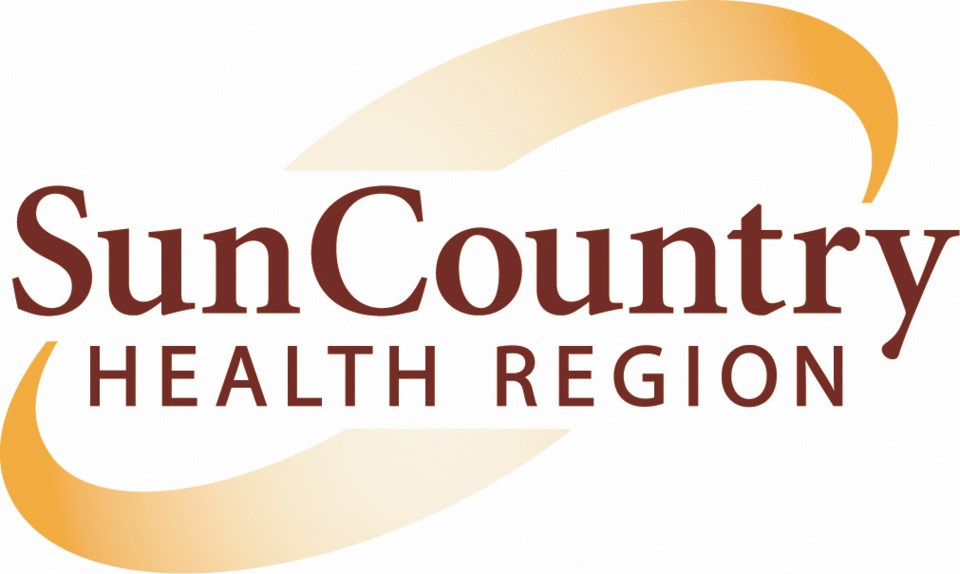The Sun Country Regional Health Authority and board of directors have come in for some more pointed criticism, this time from the provincial auditor.
The annual auditor's report carries information that the local health authority showed some laxness in its accountability practices. The policy was in place, but wasn't necessarily being followed, said Brian Atkinson, the provincial auditor.
Following the departure of Sun Country's former financial vice-president Hal Schmidt and CEO Cal Tant, it was pointed out that the regional authority wasn't following its established policies when hiring management personnel which led to inappropriate hiring decisions.
At that time Sun Country's chairwoman Sharon Bauche said the board, that oversees the operation, had failed in that regard by not seeing to it that Tant and others had followed the policies and procedures. That led to the board stating they had lost confidence in Tant and his ability to administer the health district following the disappearance of Schmidt, who, as it turned out, had misrepresented himself as a chartered accountant when being hired at other health administration positions. It was also learned he had granted himself a loan of $75,000 at a British Columbia health care facility which had not been paid back prior to his arrival in Sun Country to assume financial caretaking duties in this region.
Now it appears as if the auditor has pointed out further problems in the Sun Country relocation incentives policies and processes which led to the loss of about $15,000 in public money.
Interim CEO Marga Cugnet told The Mercury last week there were two instances where the policies were in place, but they weren't followed under the previous regime.
"By the time we followed them up the line, we discovered the problem and started proceedings to recover the money. There just wasn't strict compliance with the policy and one person was misusing the relocation purchase card and there was one person supposed to be monitoring the situation."
Although Cugnet said she could not reveal who the person was who was misusing the purchase card, it wasn't Schmidt, the deposed financial vice-president.
"It was another person. The matter is now at the collection agency," she said.
Since the person in question has since declared bankruptcy, she admitted that the chances of recovering the misappropriated $15,000 were slim.
Since then there have been refinements made to the Sun Country purchasing policy and no relocation expenses can now be chalked up on the purchase card.
Other weaknesses that were uncovered with the Sun Country's biomedical policy are being addressed with their contracting agency, the Regina-Qu'Appelle Health Region. A self-imposed audit is also being carried out.
Another weakness was uncovered with the Sun Country information technology policies and disaster recovery processes.
Cugnet said those have been addressed and the disaster recovery processes on the technology side are now backed up.
When addressing the issue of the hiring policies, the auditor pointed out that "Sun Country did not always comply with its established policies. Officials at Sun Country did not always document the results of interviews, reference checks and criminal record checks. Nor did they document reasons for hiring a candidate who did not meet the qualifications in the selected position description. Lack of compliance for hiring management personnel could result in inappropriate hiring decisions," said Atkinson.
When it came to the relocation misstep, the auditor added that Sun Country didn't have policy and procedures for administering incentives for difficult to fill positions where relocation incentives were being offered.
"There was no policy as to when to offer incentives, maximum amounts or the process to disburse payments for the incentives. Lack of clear policies and procedures could result in a loss of public money," the auditor said.
And it did in 2008 when Sun Country agreed to pay a newly hired senior employee a relocation allowance of $15,000 upon production of original receipts to support the expenses. The employee used the Sun Country purchase card to pay relocation expenses and continued to use the card for nearly two years after commencing employment. The majority of the payments from the card in 2009 and up to March 2010 were not supported by verifiable receipts. By that date the employee had charged about $25,000 on the purchase card, all apparently for relocation expenses. About $10,000 was repaid, representing the amount in excess of the agreed upon relocation expenses.
In the other instance, a Sun Country employee misused a purchase card by using it for personal travel and expenses totaling $6,080.
When Sun Country became aware of the misuse, it cancelled the card and was setting up a repayment plan when the employee resigned, moved to another province and claimed bankruptcy. The employee owes Sun Country this amount as well as relocation expenses of $7,442 and other benefits of $2,066 for a total of $15,588 plus interest. This was the matter that Cugnet referred to as having gone to the collection agency with little chance of recovery.
The auditor said Sun Country had no evidence of reference checks when it hired this employee in May 2009, nor had it obtained a criminal record check or document evidence of a review of the employee's credentials.
Sun Country currently works within an annual budget of approximately $121 million which serves about 58,000 people in southeast Saskatchewan and 19 health care facilities.




